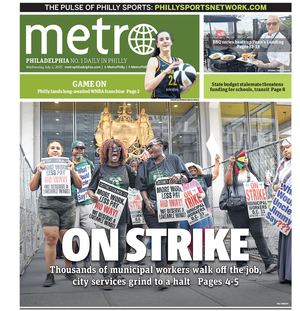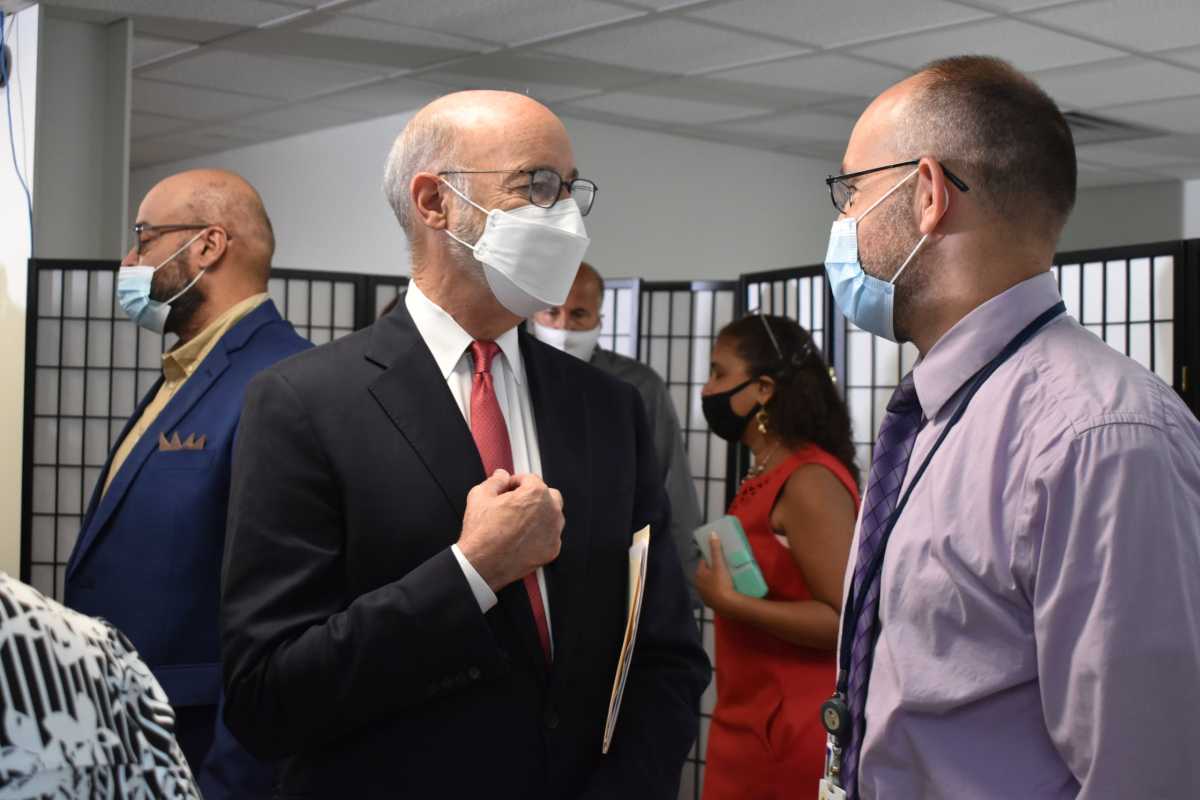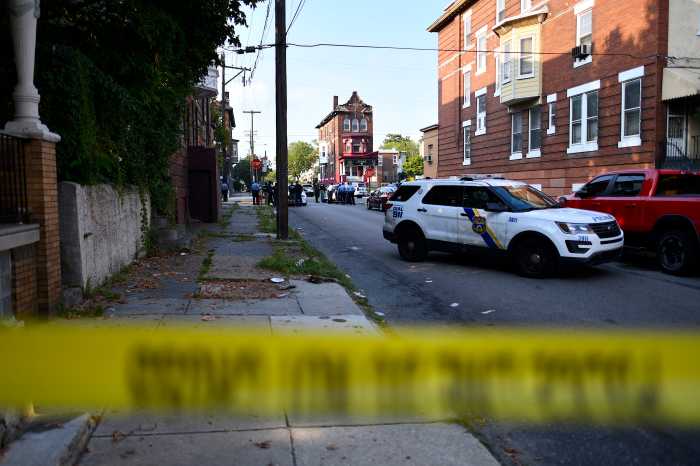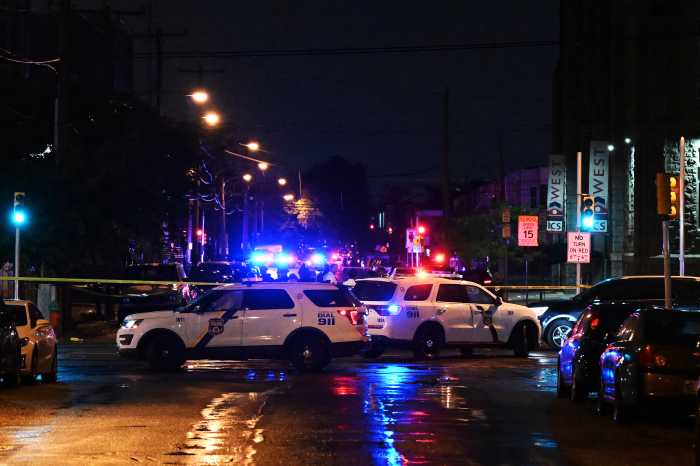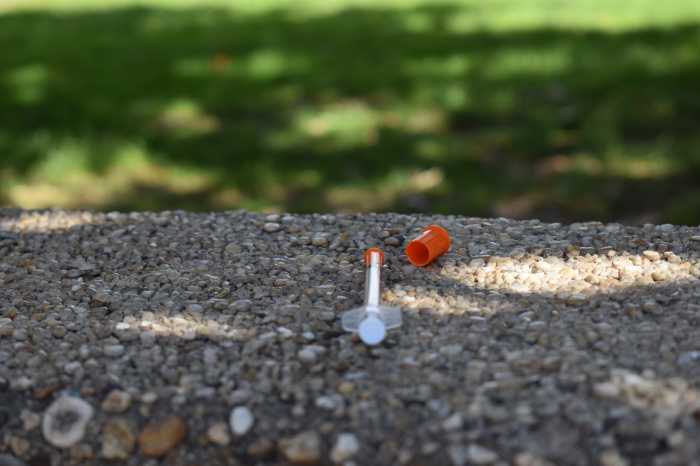More state resources need to be devoted to addressing the opioid epidemic in Kensington, Gov. Tom Wolf said Thursday after touring the neighborhood, which has been ripped apart by drug addiction and violence.
Discussions are ongoing about launching a revamped drug court in an attempt to get users off the street and into treatment, according to elected officials who accompanied Wolf during a press briefing.
Community leaders pulled the governor aside, giving recommendations on how to solve the neighborhood’s woes.
“Let me be clear, there is no magic wand” to solving the opioid epidemic, Wolf told reporters.
Donna Aument, a local Democratic Party ward leader, told him her great-grandson can’t play outside due to the rampant, open-air drug use and dealing. She urged immediate action.
“There has to be some kind of way that we can remove the people off the street,” said Aument, who lives near the corner of Kensington and Allegheny avenues. “Our kids see them defecating on the street, having sex on the street, sticking each other with needles on the street.”
Employees and clients struggle to even get through the doors to access services at Esperanza Health Center, said Susan Post, the organization’s CEO.
“Recently, the opioid epidemic has grown to crisis proportions,” she added. “It is literally killing us. It threatens to bring us to destruction.”
Wolf took a ride through Kensington with state Sen. Tina Tartaglione, who invited him to visit the neighborhood. He described the tour as “incredibly sad and depressing,” though some said the city cleaned up in advance of his visit.
“There are no easy answers,” Wolf said. “But we have got to figure this out. Because this is hurtful to people who are addicted. It’s hurtful for their families. It’s terrible for the community.”
“We need to do something about this,” he added.
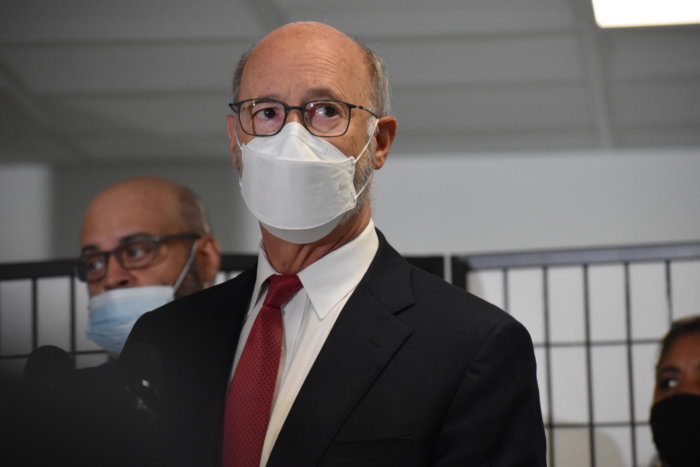
Philadelphia and Pennsylvania saw near-record high levels of fatal drug overdoses last year. More than 5,000 people died statewide, including 1,214 in the city, a spike officials have attributed to the growing presence of fentanyl.
Following a peak in 2017, the commonwealth’s overdose numbers dropped 20%, but COVID-19 disrupted that progress, Wolf said.
“The pandemic did not help us; in fact, it exacerbated the problem, the problems of addiction,” he said. “We took our eye off the ball.”
One issue, Tartaglione and others argued, is that those arrested with small amounts of opioids have their cases immediately dismissed.
Elected leaders have been talking about setting up a drug court with a dedicated funding stream so that opioid users can be encouraged — or compelled — to get help.
Philadelphia’s current treatment court model doesn’t have the capacity to handle all the drug possession cases that are filed, said state Sen. Sharif Street, who also attended the event.
The program allows some offenders to plead no contest to their charges and avoid jail, provided they enter a treatment center and undergo frequent drug testing.
City Councilwoman Maria Quinones Sanchez acknowledged the talks about a new drug court but said she wants to avoid criminalizing drug users. She favors a system that utilizes civil, instead of criminal, penalties.
Details of the potential program continued to be worked out, Tartaglione told Metro.
“I’m just trying to get funding for it,” she said.
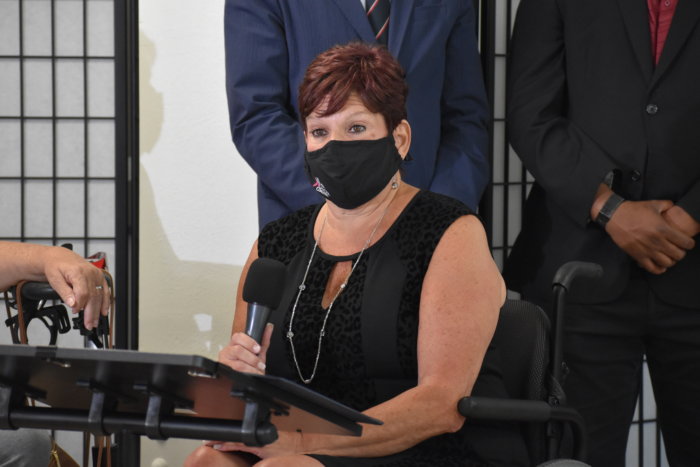
Wolf called on legislators in Harrisburg to reinstate a drug monitoring program that kept tabs on doctors prescribing opioids. The system prevented ‘doctor shopping,’ or the practice of looking for unscrupulous physicians, he said.
The initiative was part of Wolf’s opioid disaster declaration, first issued in 2018. It expired last month after voters approved a GOP-backed ballot question limiting the governor’s emergency powers.
Wolf reiterated his opposition to safe injection sites, saying he’s not convinced by supporters who argue that such facilities have been shown to decrease overdose deaths.
Safehouse, the group attempting to set up a site in Philadelphia, has appealed to the U.S. Supreme Court in a bid to move forward with its plans, according to an Inquirer report.
“The common theme here is we need to make sure the resources are there,” Wolf concluded.
“We need leadership,” Quinones Sanchez cut in. “We need you to help us provide leadership.”
